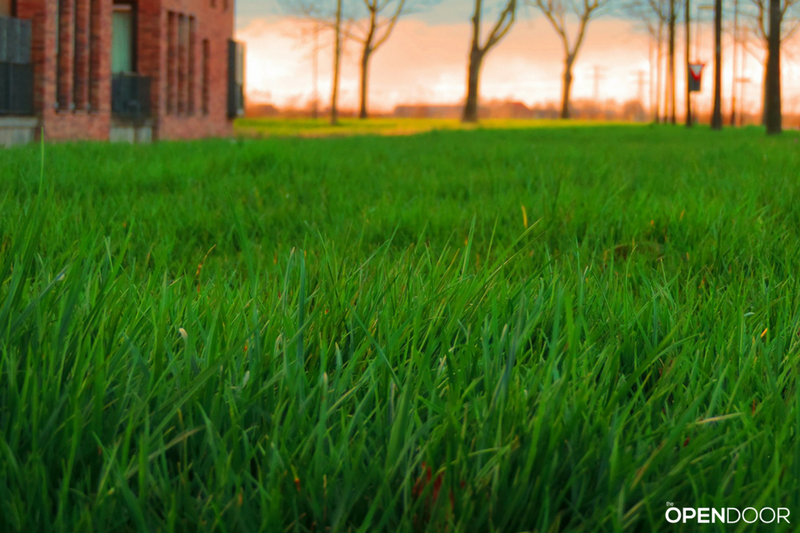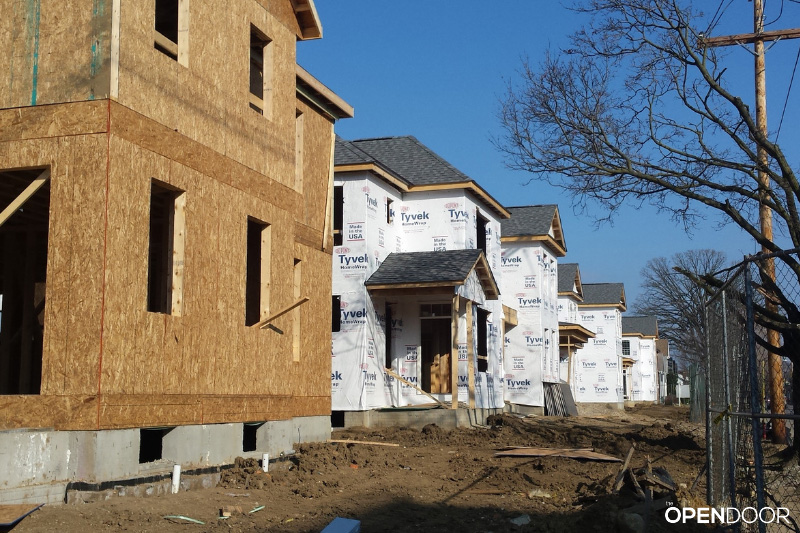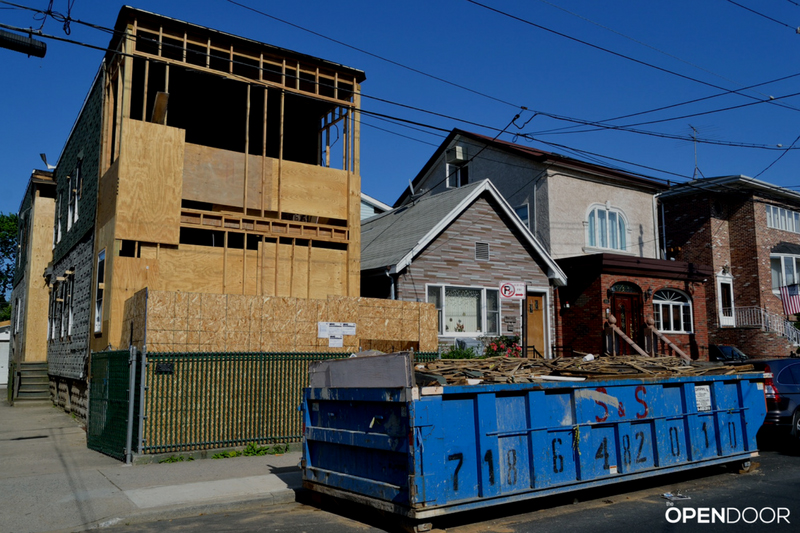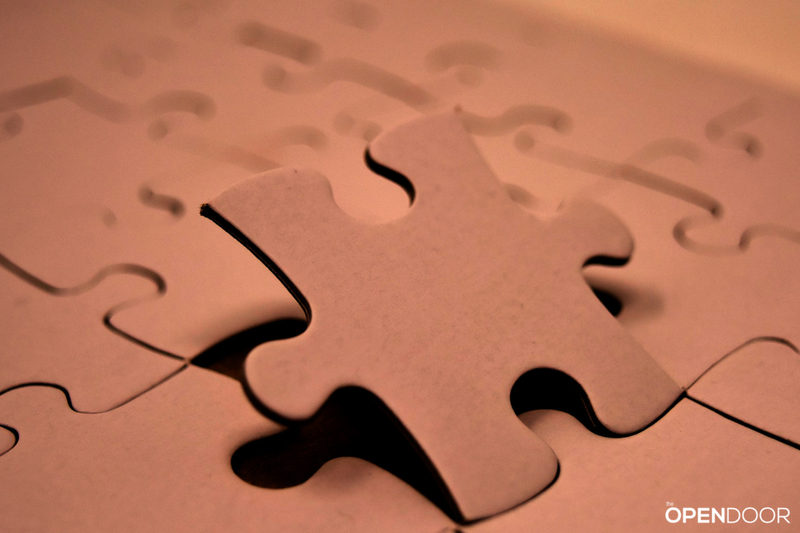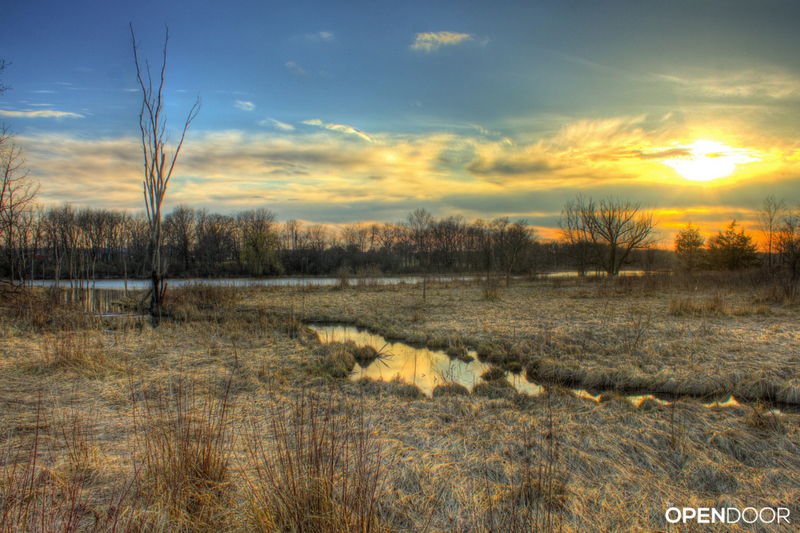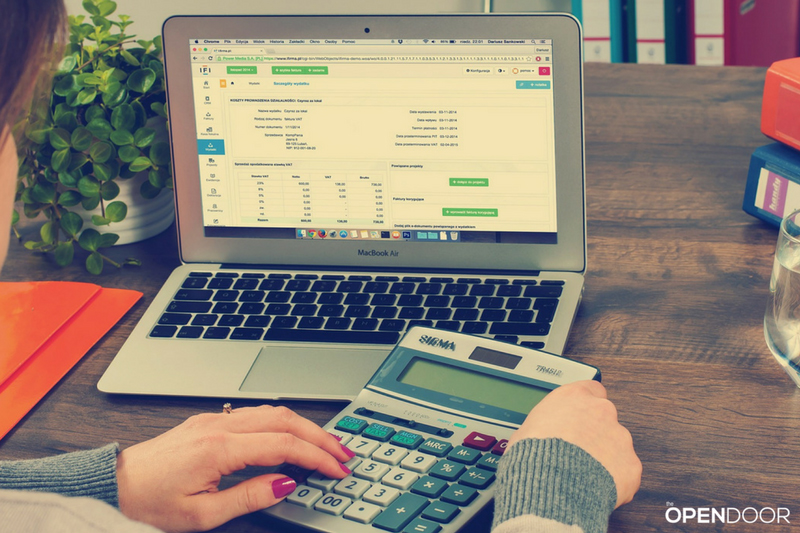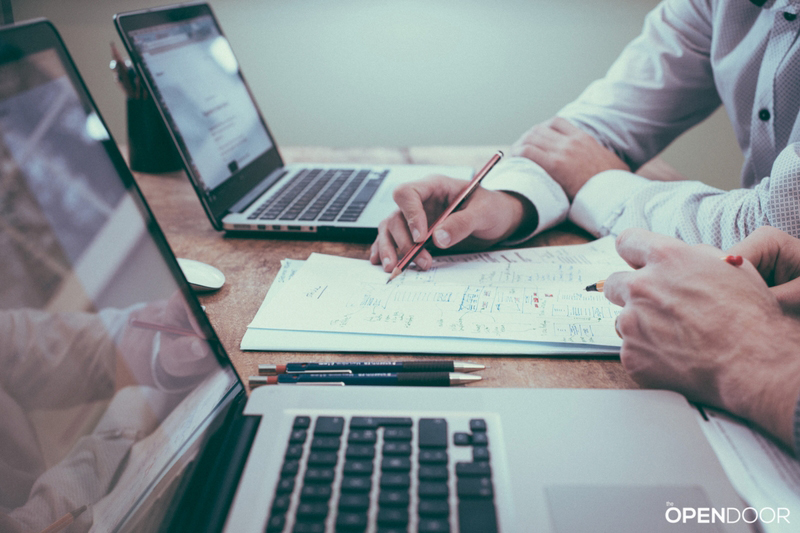For many people, the idea of buying land and building their perfect house on it is a dream waiting to happen. Before getting to all the exciting stuff like designing, finding the right property at the right price can be a challenge.
Finding the right property to build on takes time. Having a rough idea of what you want to build is important so that you can build the house you want on it, taking advantage of the site’s features, size, orientation, terrain, and vegetation. (For more on selecting land before designing your house, read this article.)
But most importantly, the property also has to be within your budget. And not only that, if you intend to ever sell the land (and future house on it) you’ll want to make sure you get your money’s worth and actually make a profit, instead of take a loss.
Which leads us to:
How do you know how much you should spend on buying land if you want to build a house on it?
Everyone has a slightly different way of determining how much they want to spend on buying land. Some create spreadsheets and crunch numbers. Others decide based on their gut and what “feels right”. And yet others rely on outside experts to help them determine if the property is valued fairly or not.
If you want to base your land purchase price on maintaining profitability and staying at or above market value when the house is built, here’s a quick calculation I recommend. I should warn you that while this is a simple mathematical calculation, figuring out which numbers to use in the equation is anything but easy. You’ll want to do some research and use your best judgment in this.
Land Purchase Price Calculation:
First, think about resale value. Do you want to be profitable if/when you eventually sell the house?
This may seem like a no-brainer, but to some people, this is their forever home. To them, they don’t care about resale value because they don’t plan to sell it. They just want to find the perfect land for their perfect house. But for most of us, considering resale value is an important part of the equation in determining how much to spend on buying a lot.
For the sake of this discussion, let’s assume you want a good deal and want to eventually make sure the house (and land) are valued at at least market value when it’s all said and done.
How to figure out the value/purchase price of land and the relation of land to building cost:
Research the projected sale price of your future house. Look at comps in the neighborhood, talk to realtors, and consider market conditions now and in a few years when the house is done. This amount would be your gross revenue if you sold your house or also think of it as the value of your house.
To make this scenario realistic, subtract out sales costs (realtor commissions, escrow, titling) and taxes (if any). These are sales expenses and are realistic expenses you’ll incur if you sell your property. When you subtract these from your sale price, you’ll have net revenue or net sales price. You can also subtract out any profit you’d like to see if you really want to get technical about this calculation.
Now, figure out roughly how much you’ll spend to build your house. I know this is a loaded question and there a lot of variables at play, but a ballpark figure or a construction estimate from a contract may help. Try to figure out both the hard and soft costs. This amount is your total project cost for budgeting purposes.
Subtract the project cost from the net revenue and that should be the maximum price you’d pay for the land.
Let’s look at an example:
Let’s say you want to build a 1,500sf 4br/3ba house. Market value is approximately $450,000. (If you assume market value will increase over time before you sell, you can increase this value, but for the sake of this simplicity, we’ll leave it at that value.)
Now, subtract out any sales costs, taxes, and profit (if any). Let’s say 7% for sales costs, no taxes (in the US, the first $250,000 in profit is tax-free if it’s your primary dwelling), and no profit (we just want to break even). So that’s 31,500, which makes net revenue = $418,500.
Now, let’s say you called a few contractors and talked about the type of house you wanted to build (style, size, features, quality, etc.) and you were quoted at roughly $200/sf. That would mean that hard costs to build the house would be $300,000. You estimate soft costs (permit fees, engineering and design fees, financing fees, etc) and a contingency to be around $75,000. So total hard and soft costs to build a house would be $375,000
Subtract the cost to build from net revenue to arrive at the maximum land price of $43,500. That’s your break-even point. If you pay more for the land you run the risk of losing money in the end. If you pay less for the land you’re potentially building in profit or more value.
Mathematically, it’s simple. The hard part is accurately estimating the market value/sales price, the sales costs, and the cost to build.
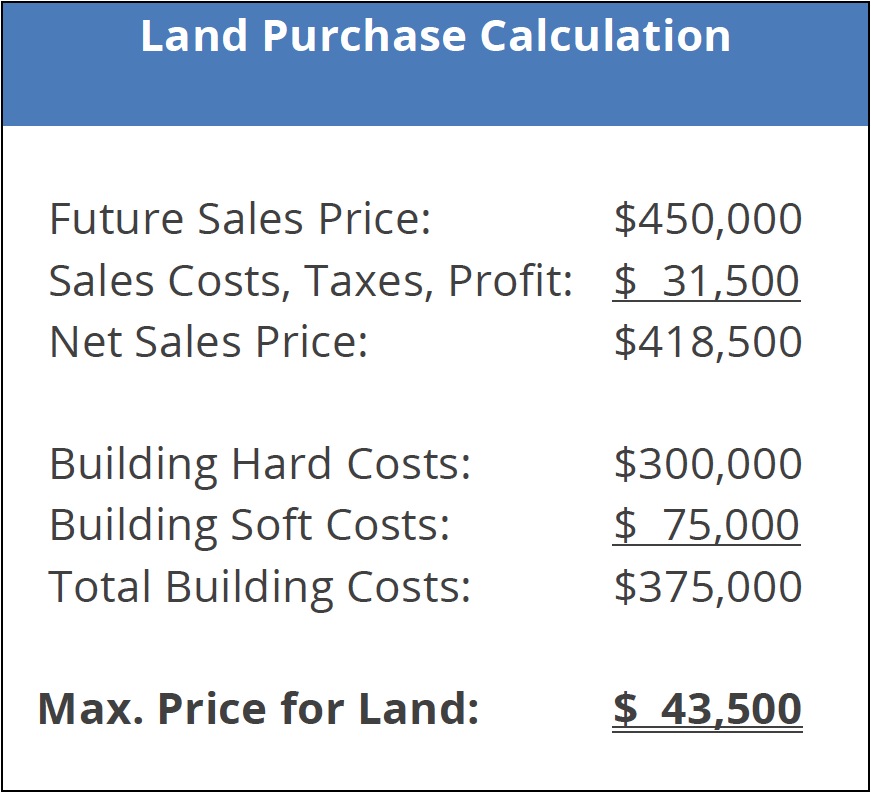
To restate the process for anyone curious about determining the value of an empty building lot, here’s what you should ask yourself:
- What do I plan on building on the lot and how much will be the estimated market value/sales price?
- How much are the sales costs and construction costs (hard and soft costs)?
- The net leftover is what you can reasonably pay for the land and still see a potential profit if you decide to sell it.
Rules of thumb for land to house ratios are unreliable.
Some developers and future homeowners try to evaluate the value of land based on specific ratios between land and house. Some say a land value around 18-20% of the house value, some say below 33%.
I have a hard time with these rules of thumb because there are too many variables. These ratios vary widely based on market conditions, location, property-specific development conditions, and many other factors, not to mention if it’s an improved lot or a raw piece of land without utilities.
So while I see the convenience of having a rule of thumb calculation, I caution you in using these. I’m a strong advocate in taking the time to fully scrutinize the assumptions, and prior to putting in an offer, conduct a more detailed analysis to determine and refine your calculations and estimates. The cost/benefit of doing the proper work cannot be overstated when making land purchases.
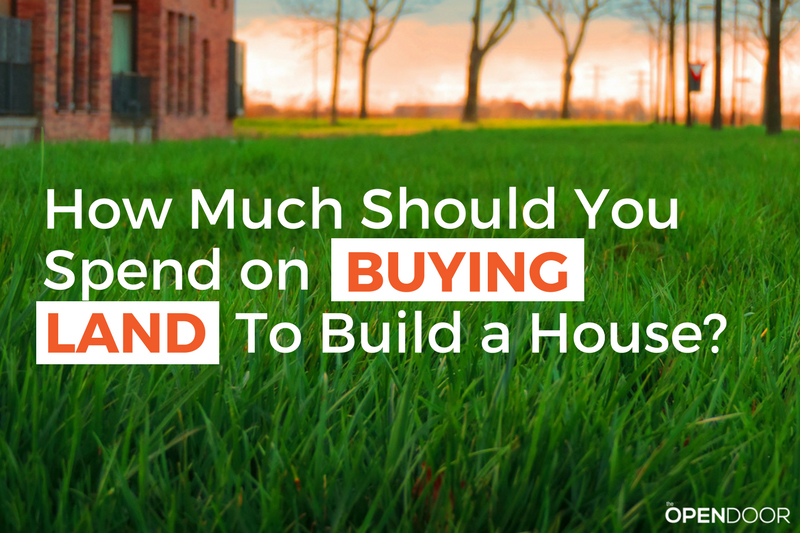
Do you have experience in buying land to build a house?
Share your experience and ideas: How did you figure out the price to pay for the land? And how did it work out for you?

